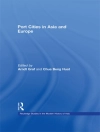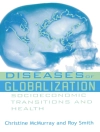Noted coastal geologist Orrin Pilkey and environmental scientist Linda Pilkey-Jarvis show that the quantitative mathematical models policy makers and government administrators use to form environmental policies are seriously flawed. Based on unrealistic and sometimes false assumptions, these models often yield answers that support unwise policies.
Writing for the general, nonmathematician reader and using examples from throughout the environmental sciences, Pilkey and Pilkey-Jarvis show how unquestioned faith in mathematical models can blind us to the hard data and sound judgment of experienced scientific fieldwork. They begin with a riveting account of the extinction of the North Atlantic cod on the Grand Banks of Canada. Next they engage in a general discussion of the limitations of many models across a broad array of crucial environmental subjects.
The book offers fascinating case studies depicting how the seductiveness of quantitative models has led to unmanageable nuclear waste disposal practices, poisoned mining sites, unjustifiable faith in predicted sea level rise rates, bad predictions of future shoreline erosion rates, overoptimistic cost estimates of artificial beaches, and a host of other thorny problems. The authors demonstrate how many modelers have been reckless, employing fudge factors to assure ‘correct’ answers and caring little if their models actually worked.
A timely and urgent book written in an engaging style, Useless Arithmetic evaluates the assumptions behind models, the nature of the field data, and the dialogue between modelers and their ‘customers.’
Mengenai Pengarang
Orrin H. Pilkey is the James B. Duke Professor of Geology emeritus and director emeritus of the Program for the Study of Developed Shorelines at Duke University’s Nicholas School of the Environment. He has written numerous books, including
A Celebration of the World’s Barrier Islands, and is the editor of the twenty-four-volume series,
Living with the Shore.Linda Pilkey-Jarvis is a geologist in the State of Washington’s Department of Ecology, where she helps manage the state’s oil spills program.












